MaThousand: Rassie van der Dussen
Rassie is one of the most consistent batters for the Proteas.
Rassie van der Dussen boasts a unique milestone, he has scored a half-century on debut in all three formats.
If you are not a subscriber of Stumped!, join more than a thousand other professional athletes & ex-pros, coaches, commentators & analysts and casual sports fans that receive the newsletter in their inbox each week — it’s free:
At the Van der Dussens’ old home in Pretoria, there was a run-down tennis court. That is where the four Van der Dussen brothers spent a lot of their time. The tennis court was totally hopeless for tennis. But, somewhere between the cracked concrete and the little scattered potholes, there was a strip that was just good enough for some cricket.
The boys would set up four garden chairs to act as supplementary fielders. That backyard international was played with a middling bat and a tennis ball. A middling bat is half the width of a normal cricket bat. Whoever scored the least runs got to perform chores for the others. Things like making coffee, depending on the weather.
“I don't think Rassie once made coffee for us because he would just bat forever,” says Nico van der Dussen.
There is a big tree close to the homestead at the farm owned by the Van der Dussens’ grandfather. They used that tree as the stumps when they played cricket there. The Van der Dussens didn’t vacation much, and for the holidays that they did not spend in Pretoria, they spent them at the farm.
Instead of a middling bat, the boys used a bamboo stick. They called it bamboes-krieket or bamboo cricket. The rules were pretty similar in both forms of cricket that the guys played. Being caught would get you dismissed. Missing the ball would also get you dismissed.
Rassie and his siblings still enjoy the occasional bamboes-krieket contests. The contests can be quite competitive.
“If you have Van der Dussen brothers together, whatever equipment there is, some sporting will happen,” says Nico van der Dussen. “It's so damn competitive. But it's good competitive, never bad competitive between us.”
Adriaan, Rassie, Nico and CE are first-generation cricketers. Their father, Nico Snr was a keen rugby player. He never played professionally, though. Their maternal grandfather also played rugby. By all accounts, they were a rugby-playing family.
Of his four sons, only Adriaan played rugby. But it was only very briefly when he was in primary school. Thereafter, Nico van der Dussen Snr made sure they did not play the sport.
“There was long term insurance company that did a study, a big study, that came out then on the effects that all the concussions have on players, so they can plan better for their life insurance policies,” says Nico van der Dussen, the third of the four brothers. “And when my dad read that he said no son of his will play rugby.”
Rassie van der Dussen is the only one who chose to pursue cricket as a career. The rest of the van der Dussen boys are happy to play club cricket. Rumour has it that Adriaan had more talent in the sport, but he decided early on that he had other dreams. Immediately after school, Adriaan went to study journalism. He works in digital marketing now.
Everyone who ever watched him play was convinced that Adriaan was the real deal. Adriaan van der Dussen was the first captain to lead Menlo Park High School into the schools’ A league. That was a huge achievement for the school. It was never one of the top cricketing schools. It was certainly not on the same footing as institutions like Affies and Waterkloof, premier cricketing schools.
Rassie didn’t have Adriaan’s obvious talent. He could bat and bowl when needed. He had talent, but he did not have THAT kind of talent. He didn’t have the type of talent that makes for an easy path into age-group provincial sides. What he had was the drive.
“I wasn't one of the players that were earmarked to necessarily go on and play high-level cricket,” says Rassie van der Dussen. “But through a little bit of perseverance and a bit of hard work, I eventually got some opportunities.”
Rassie also attended Menlo Park High School. He matriculated at 17 because he went to school a little early. Nico Snr and Rassie agreed that another year of school cricket would do him good. The opportunity would give him more exposure and allow him to play more cricket. Another Khaya Majola Week wouldn’t hurt if made it to the competition.
“He said that instead of just going to play club cricket, he wanted to do a post-Matric,” says Nico. “He wanted to work with good coaches and use that extra year of school cricket to hone his skills.”
His choices were Waterkloof and Affies. Rassie van der Dussen chose Affies. Where Waterkloof was happy just to have him play cricket, Affies said that he had to take classes. So Rassie took on extra subjects. He knew about Deon Botes.
Premier cricketing schools are hotbeds of talent. In part, because they get some of the best young talents and also because they have some of the best talent improvement methods of coaching. The emphasis at these schools is on improvement. They practice what Talent Code author, Daniel Coyle, calls deep practice.
“I didn’t do a lot of work on his technique,” says Deon Botes, Affies’ long-serving cricket coach. “When he arrived at Affies, I helped him to realise that his cricket wasn’t where it was supposed to be if he was going to make it professionally.”
After a bit of a slow start, in his one year at Affies, Rassie broke a longstanding record Affies batting record. He scored the most 50s and most 100s in a calendar year. Five 100s and 11 half-centuries in his 32 innings for the school that year.
Stumped! is a reader-supported newsletter. Those who opt to leave tips (buy coffees) or become patrons are taking an active role in the work that I do by providing vital assistance to bolster my independent coverage of cricket. Feel free to forward this post to family and friends interested in cricket and/or cricketers.
By the time Rassie got to Affies, he already knew that he wanted to make a career out of cricket.
“Early high school, even late primary school, I knew that I wanted to try and make this a career,” says Rassie. “And from then on I tried to live my life in a way that I thought could improve me in terms of my training, in terms of my diet and all the aspects that went into it.”
“He was strict about his fitness,” says Nico.
“I started reading up on previous players and how they dealt with being professional sportspeople and try to learn lessons that way,” says Rassie. “I sort of tried to work it out for myself as I went on.”
There is this thing that he liked to do a lot. It was a practice in concentration. Rassie would create an obstacle path around their house. He would try to navigate the path while juggling three balls. He would challenge himself to go for at least an hour without dropping a ball. If he dropped one ball he would reset the time and start again.
His attitude and hunger for growth made things easy for Botes.
“He is a good kid, he was a good kid,” says Botes. “He worked hard and was always open to new information. Always reacted positively to critical feedback.”
If you’re enjoying this post, it would be awesome if you shared it with your friends. Thanks, as always, for supporting Stumped!
Legend has it that at one point, at North West the team put up an incentive, any batter who scored a ton would walk away with R1000. Rassie van der Dussen, who was 23 at the time, made a tidy sum. He piled on runs, scored a few tons and earned a few bonuses. That’s how he got the nickname MaThousand.
Playing for North West was not in Rassie’s career plans. He was a Pretoria boy and had always dreamt of playing for the Daisies, Northerns (now Titans) are known. This is where he developed his craft as a young man, and all of his friends were there. Chris Cardoso, his best friend and business partner, and Mark Charlton, his mentor and very close friend. His family played club cricket in the Pretoria scene.
“Cricket, and in sport in general, it's about opportunities,” Rassie told me in an interview.
Success is not just a result of your skill and how hard you work. It’s also about opportunities. You could be the hardest worker and develop the right skills to help you succeed, but without opportunities, those qualities are not worth a lot. You won’t get anywhere if all you are is skilful or hardworking but without the opportunities.
Opportunities were few for Rassie at Titans. Van der Dussen had broken into the Northerns senior team at a young age, and the feeling was that with the way he was progressing, he deserved better recognition. But Titans couldn’t even offer him that. They had no contract to offer him.
“One of the administrators called my dad and told him that they couldn’t offer Rassie a contract because they didn’t have the budget to do so,” says Nico. “He was one of their best young batters but they couldn’t offer him a contract.”
That is when North West came knocking. They couldn’t offer a contract on the spot, but they had a path to Rassie earning one. If he performed well and scored runs, then there would be a pathway. Rassie scored the runs. But, before he could settle in and claim a spot, the Lions came knocking with a contract in hand.
“You've got to give yourself the best chance to succeed,” Rassie said to me one time when I asked him about his preparation. By accepting the offer from Lions, he was doing exactly that for his cricket career.
From the moment he arrived, Geoff Toyana, who was the Lions' head and batting coach took him under his wing.
“Geoff Toyana had quite a big influence on me, you know, backing me as a young player,” says Rassie.
When you listen to professional athletes across codes speak about their journey, the coaches that they mention as having the biggest impact on their careers are the ones that show belief in them. The ones that helped them believe in themselves. Geoff Toyana is that coach for Rassie.
Toyana gave Rassie his franchise debut. It was in a semi-final and he told him to go out and enjoy himself. He also got him to play in the final. Toyana is also responsible for turning Rassie van der Dussen into a middle-order batter. Rassie was around 24 or 25, and until that point, he had only batted in one position, as an opener.
“I couldn’t keep him in that position,” Toyana told me when I asked him about it. “I had Alviro Petersen, Reeza Hendricks, Stephen Cook and Dom Hendricks. All openers. I had to make a choice. He was not happy with me. He thanked me later when he got over 900 runs that season.”
“I remember Rassie saying, ‘He is a big reason I am the player I am today,’” says Nico.
Nicolaas Hermanus van der Dussen Snr is a big reason why Rassie van der Dussen thinks the way he does now. A little while ago Rassie was invited on My Berge met Bouwer, a TV show on the Afrikaans channel VIA.
“If you're going to stand up for something, you're going to ruffle feathers,” Rassie told the host when the conversation turned to race and BLM, “and you are going to make people unhappy and some people are going to disagree with you. So, if you're going to stand up for anything, you might as well do it for the right reasons and for the right thing. So that if people are going to vilify you, let them vilify you for the right reasons.”
These words could have been said by Nico Snr or any one of Rassie’s brothers. This is the mindset in the Van der Dussen family.
The Van der Dussen boys are first-generation cricketers and second-generation anti-racism advocates. You are not going to find them waving BLM placards or vehemently arguing the point on social media. They don’t do a lot of social media. But they will share their point of view wherever they can.
“We all have instances of throwing people out of our houses for saying racial things,” says Nico.
Second-generation anti-racism advocates. Aat van der Dussen, their grandfather, was a right-wing politician. He was a Deputy Director-General of the Department of Forestry in the apartheid government. Nico Snr is part of the generation that was against forced army conscription and listened to Dan Heymann’s anti-apartheid song, Weeping, laughing at the government censors for not picking up that it was a protest song.
At the time, Nico Snr was the ‘bad apple’. But he was willing to be vilified for standing up for what is right, what he knew to be right. If it meant severing relationships, it is a loss that he was willing to take.
“Adriaan is named after our grandfather. Rassie is named after our other grandfather, our mother’s father,” Nico narrates. “I am named after our father. It’s standard Afrikaans tradition. CE, our youngest brother, was supposed to be named after our uncle. But because there are right-wing elements in the family, CE is named after a very, very good friend that I think is married to a cousin of my dad’s or something.”
Nico Snr has always encouraged his children to seek information and expand their horizons. He taught them to think for themselves. This is how everyone has ended up with differing views on economics, politics and religion. They are debatable subjects, like almost anything else. Only one subject is undebatable.
“I can think Rassie's political views may be incorrect and he can think mine is incorrect. And that's okay,” says Nico. “But when it comes to things like racism, there is no, ‘It's okay if he thinks different.’ We don’t agree to disagree on that point. There is right and there is wrong.”
If you found this interesting, please share it:
You can support Stumped! by leaving a tip:
Thanks for reading. Until next time… - CS


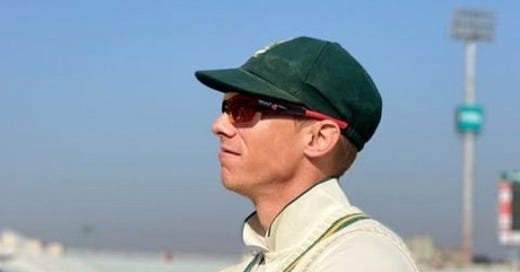


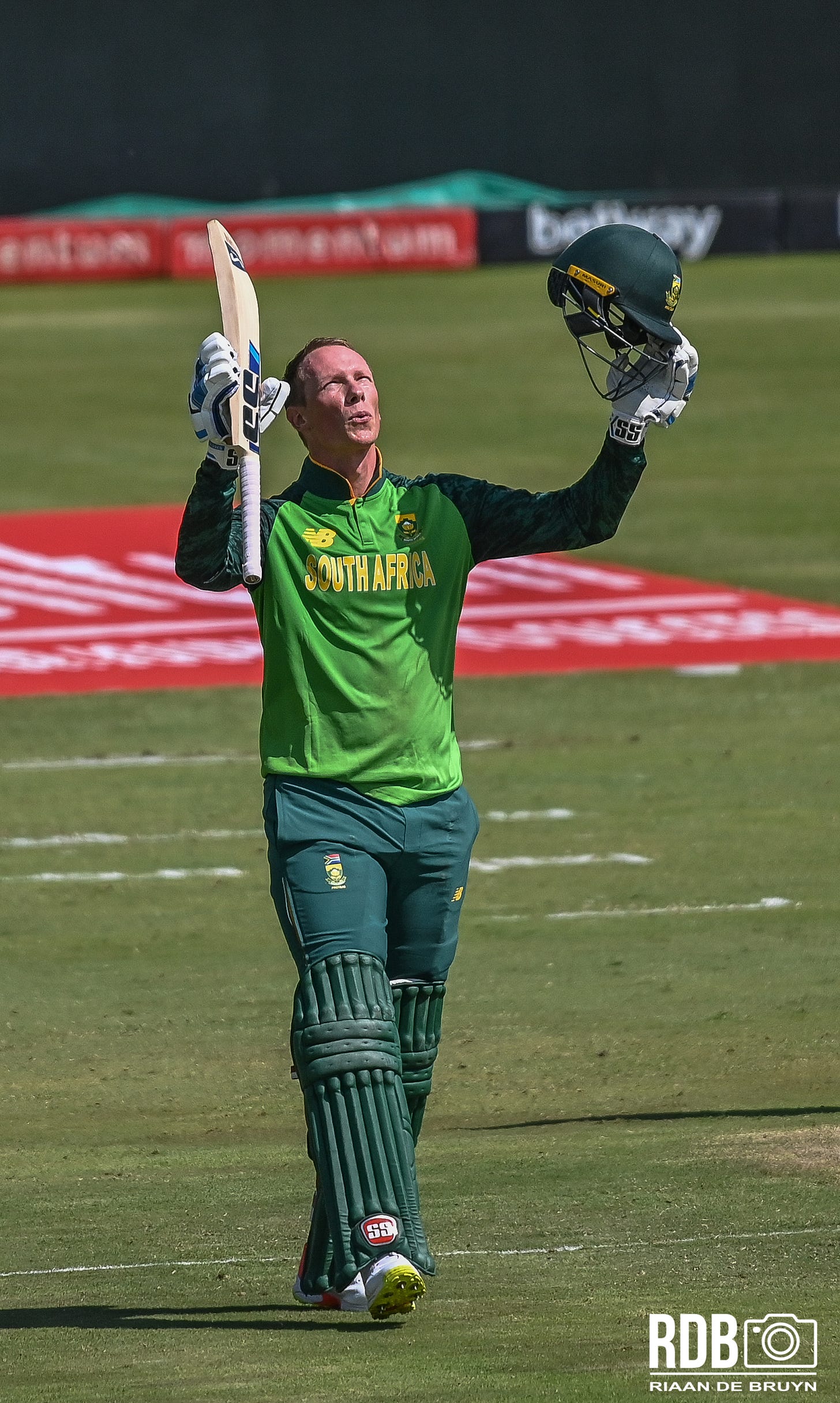
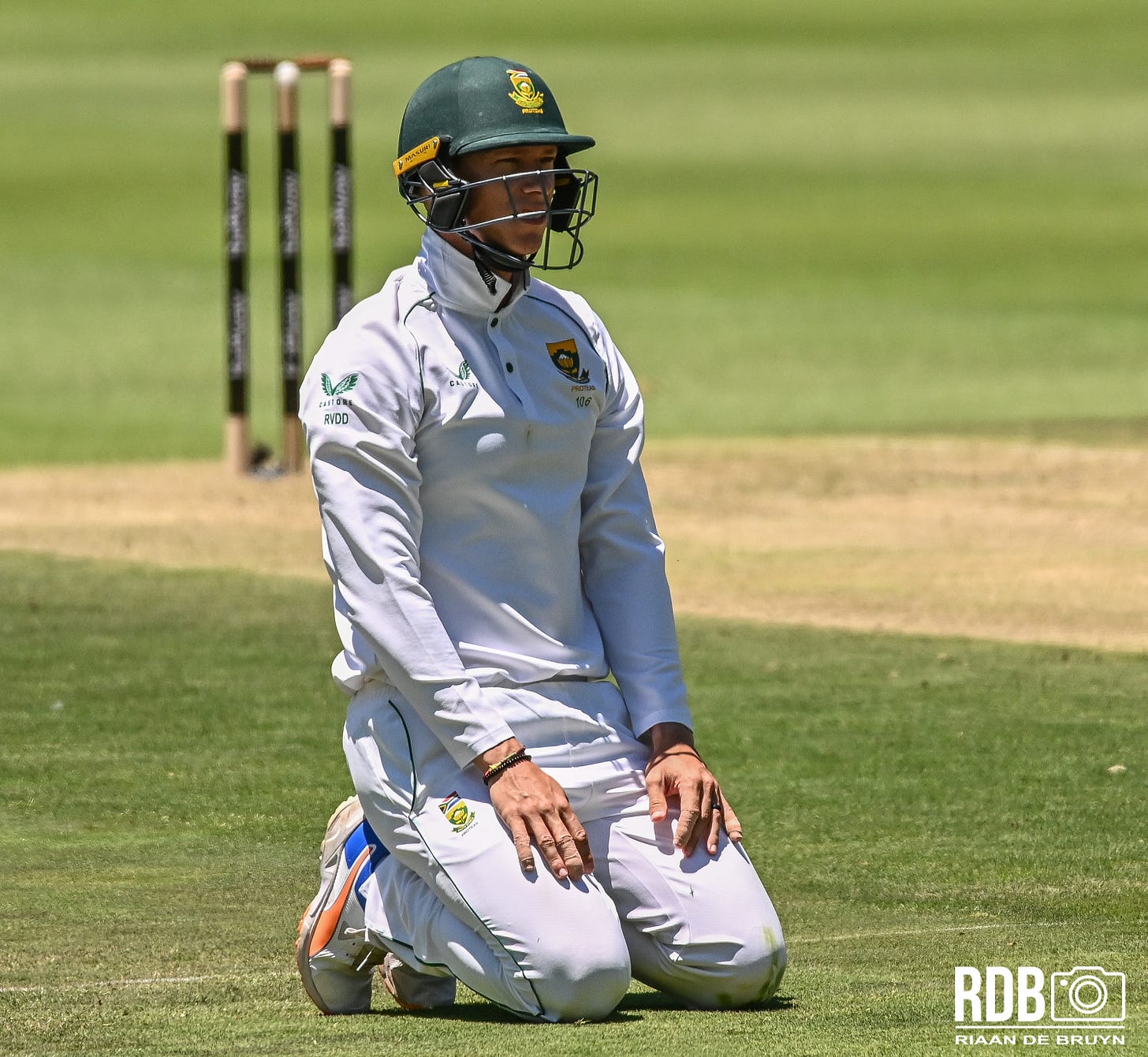
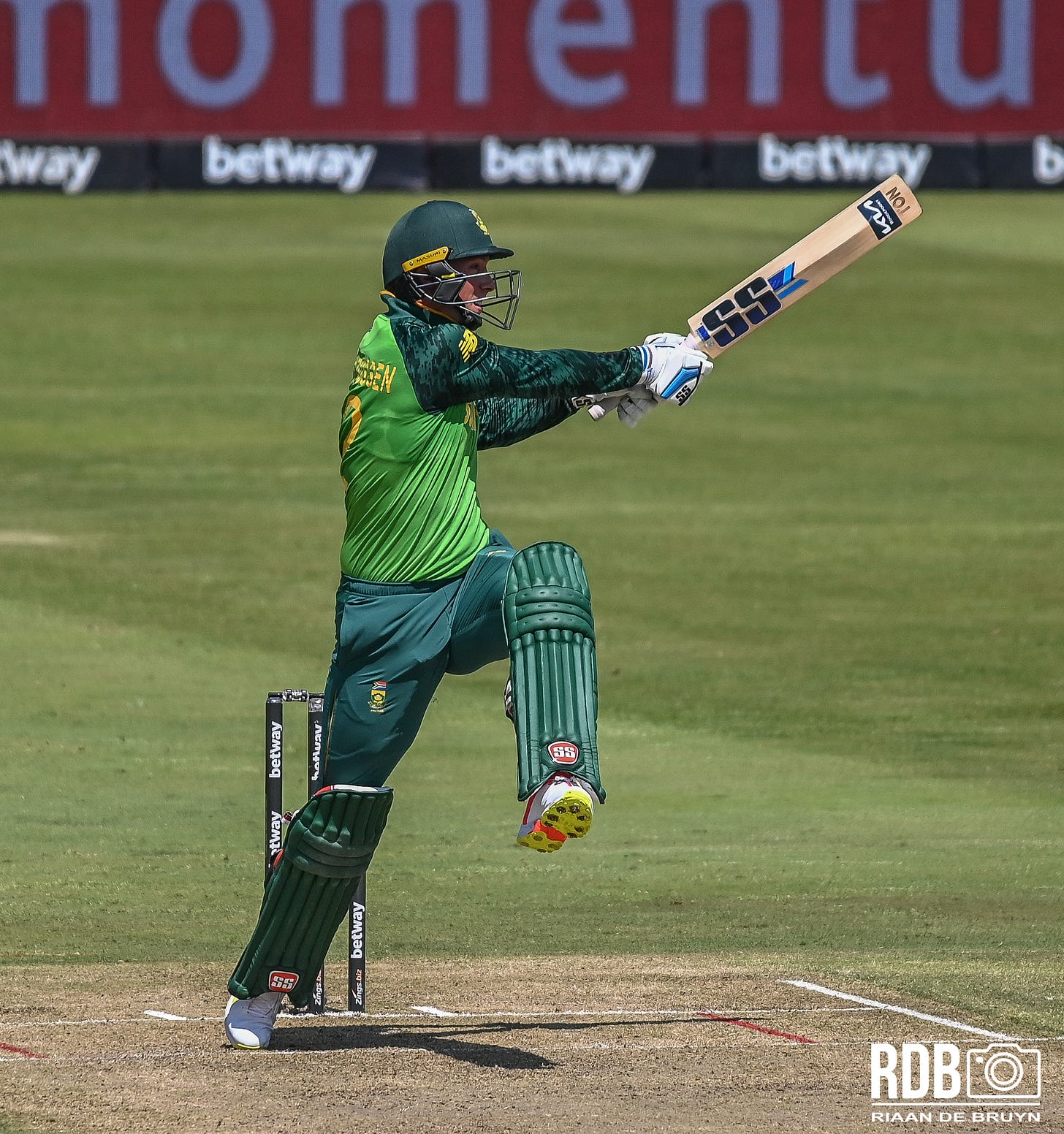

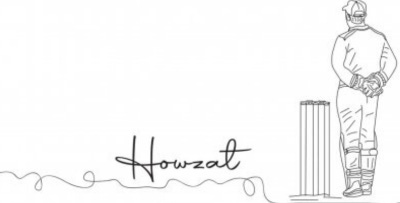
Awesome article, thank you!